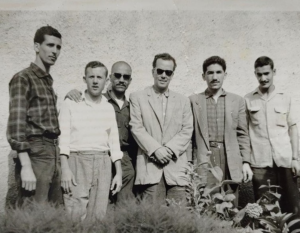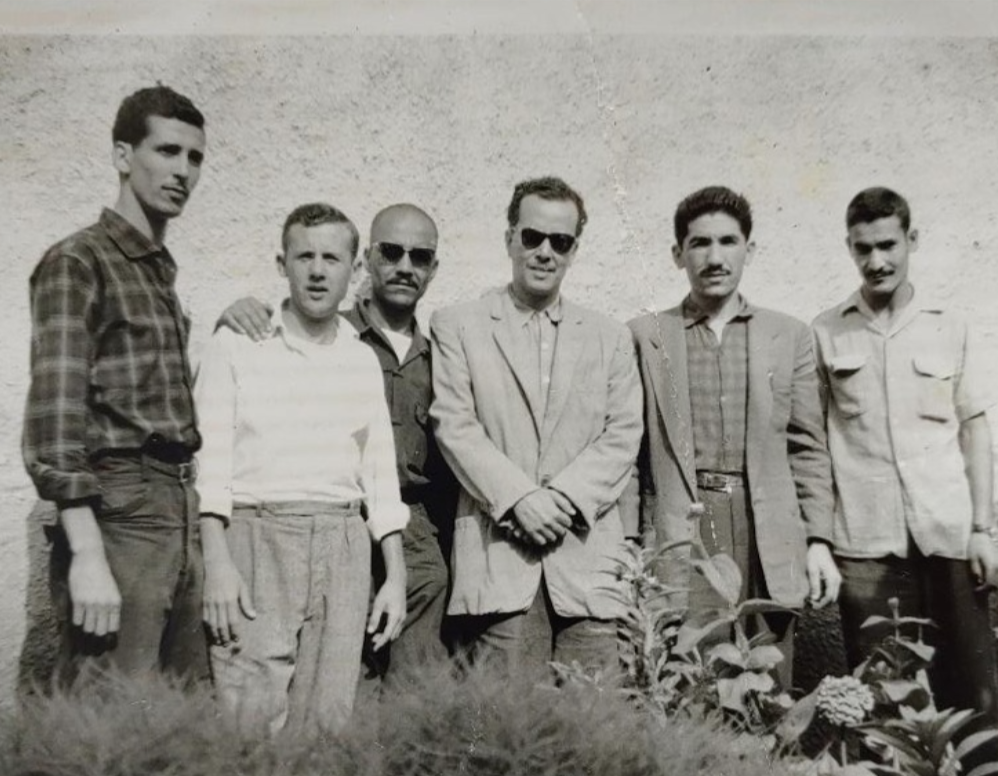The Evian Peace Accords - 60 Years Later

Djaouida Siaci
Today, March 18, marks the 60th anniversary of the signing of the 1962 Evian Peace Accords between France and the Provisional Government of the Algerian Republic — the government-in-exile of the Algerian National Liberation Front. Named after Evian-les-Bains, a small town on the French side of Lake Geneva better known for its mineral water spring than its role in this diplomatic breakthrough, The Evian Peace Accords marked the effective end of 132 years of France’s brutal colonization of Algeria — the jewel in the crown of France’s colonial empire.
The Evian Accords constitutes a brilliant example of conflict resolution. Among other things, The Evian Accords called for an immediate ceasefire, which came into effect the following day March 19 at 12:00 noon, and for the release of prisoners of war. The Accords laid the groundwork for Algeria’s transition to independence and allowed for post-independence cooperation between Algeria and France.
Although a triumph in peace negotiations, The Evian Accords were far from inevitable. Longstanding tensions stemming from France’s nineteenth century conquest and colonization of Algeria, involving pitiless repression and domination of its native Muslim populations, culminated in 1954 by the beginning of an armed struggle to end French rule. Although Algerian nationalist movements used peaceful means at the inception of the independence struggle to achieve their goals, these movements radicalized after the end of World War II due to France’s broken promises. In particular, France had promised to consider Algeria’s self-determination in exchange for Algerian Muslim service in France’s armed forces, and their contribution to the allied cause during the world war, but reneged on its promises, determined to retain its most prized colony. In response to Algerian uprisings against French occupying forces in 1945, France struck back with massacres in the Algerian cities of Sétif, Kharrata and Guelma.
On November 1, 1954, freedom fighters for the newly formed Algerian Liberation Front launched a series of attacks on French targets. France’s response included torturing nationalists and civilians. At the end of the eight-year independence struggle, Algeria’s casualties numbered 1.5 million lives out of a population of 10 million.
In January 1961, French President Charles De Gaulle called for a referendum that would authorize the French government to pursue a policy of Algerian self-determination. Following a failed April 1961 military coup to overthrow him, and in response to mounting domestic and international criticism, De Gaulle quickly began an effort to negotiate an end to the war.
Led on the French side by Louis Joxe, Secretary of State for Algerian Affairs, and on the Algerian side by Krim Belkacem, one of the six founding members of the Algerian Liberation Front, the negotiations proved contentious and arduous from the beginning. After a turbulent start and the failure of direct talks between the French and Algerians, the two sides turned to the Swiss to facilitate negotiations. Under Switzerland’s good offices and mediation efforts, the French government and the Algerian Liberation Front began negotiations in Evian, France.
Ultimately, the Accords’ major provisions focused on five main issues: (1) French recognition of a sovereign Algeria; (2) an independent Algeria guaranteeing the protection of the pied-noir — the Algeria-born population of European descent; (3) sovereignty over the Sahara; (4) the status of French military bases and nuclear testing on Algeria’s territory; and (5) the framework that would govern future economic and trade relations between France and an independent Algeria. The main hurdle was control over the Sahara’s oil reserves, which the Algerian Liberation Front was not willing to cede to the French. In addition, the Secret Army Organization (OAS), a growing right-wing paramilitary organization vowing to keep Algeria French at all costs, was active in its attempts to derail the peace talks.
In a referendum held in France on April 8, 1962, over 90% of the French people approved of The Evian Accords. In the same referendum held in Algeria on July 1, 1962, nearly six million voted in favor of the Accords with only 16,000 opposed. France recognized Algeria’s independence three days later.

Mohamed Siaci is on the left. Picture from the Paul Cazelle Detention Camp.
As The Evian Peace Accords were being finalized in France, a young man sat in his cell serving a five-year sentence in Paul Cazelle, a military detention camp in northern Algeria’s desert comparable to a concentration camp. That young man, my late father, Mohamed Ouali Siaci, was a courageous freedom fighter and a prisoner of war. Arrested and savagely tortured in the furnace of the Battle of Algiers, my father believed in resistance and armed struggle in the quest for freedom and dignity. He was released, along with hundreds of thousands of other prisoners of war, following the signing of The Evian Peace Accords.
More recently, a June 2006 business trip to Montreux, Switzerland, turned into a history lesson for me reaching back to that era. During the trip, at a lunch meeting at Le Palais Oriental, a Middle Eastern restaurant overlooking Lake Geneva, I was introduced to the owner, Shahriar Gharibi, who recounted the contribution made by his restaurant, previously a residence known as Villa Hoggar, to my native Algeria’s quest for independence. Mr. Gharibi explained that Villa Hoggar was originally built in 1960 as the home of Ahmed Raha Belroul, a member of the Algerian National Liberation Front. Mr. Belroul hosted secret meetings of Algeria’s representatives during the negotiations that culminated in the signing of The Evian Peace Accords.
Today’s bitter debate over how to remember France’s brutal colonial legacy and Algeria’s war of independence continue to play out on both sides of the Mediterranean. And as France must confront its colonial past to heal the lingering scars of the colonized, perhaps now more than ever, the history of The Evian Peace Accords underscores the importance of negotiation, compromise, and pragmatism, even in the face of seemingly insurmountable odds and intractable conflicts.
Related Resources

| Andrew H. Bellisari, The Evian Accords: An Uncertain Peace |
| C’était la guerre d’Algérie, a documentary by Georges-Marc Benamou and Benjamin Stora |
| Video, Ceasefire in Algeria Announced by De Gaulle |
| Text of The Evian Peace Accords (in French) |
The Évian Accords Turn 60
This project has been produced by Dr. William B. Quandt in commemoration of the sixtieth anniversary of the signing of the Evian Accords, which set the stage for the end of France’s largest colonial project and opened the way for Algerians to govern themselves as a modern, independent state.
Here you’ll find a number of brief essays on the importance of the Evian Accords contributed by knowledgeable commentators alongside resources that will allow readers to dig more deeply into this most interesting moment in the history of decolonization.
